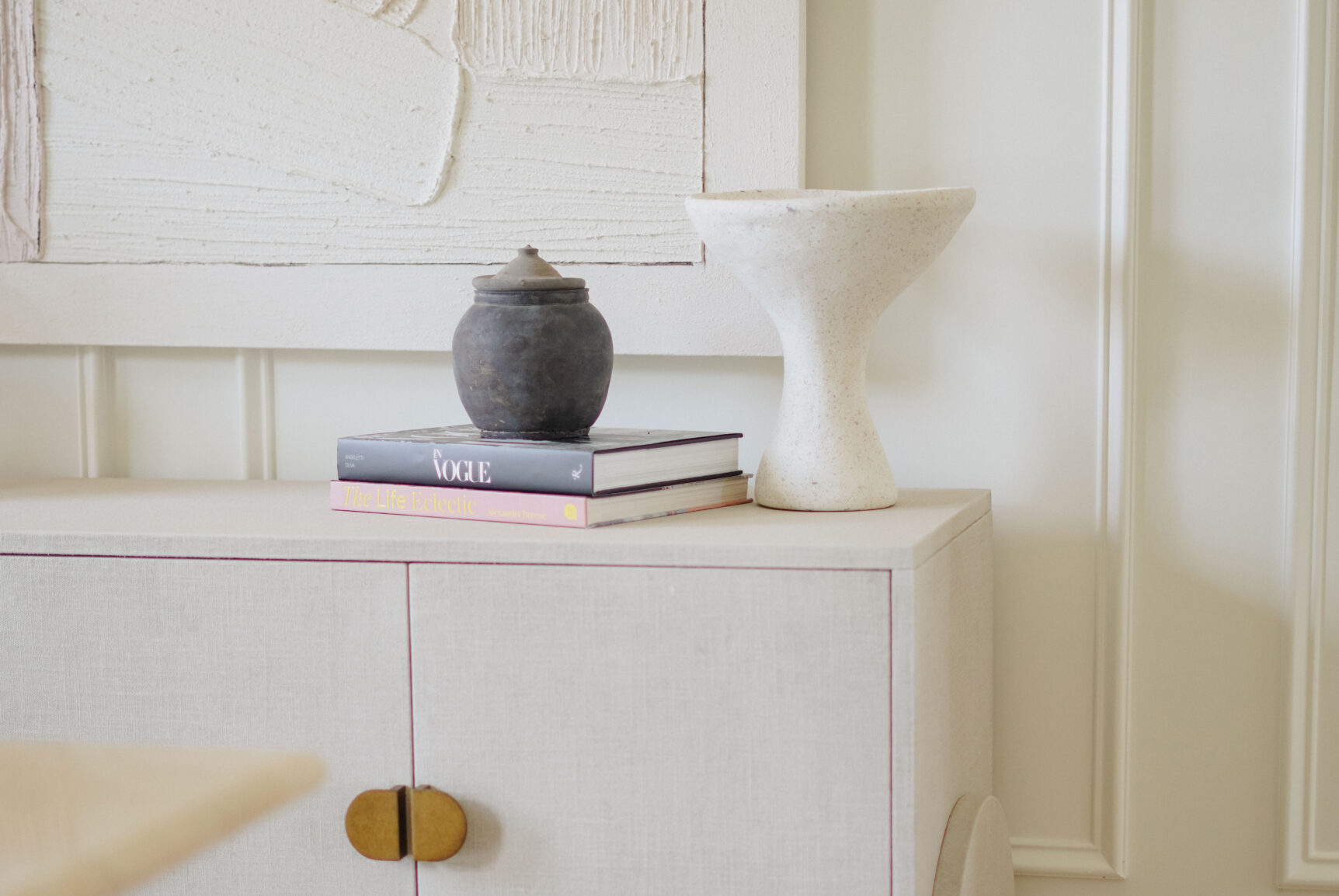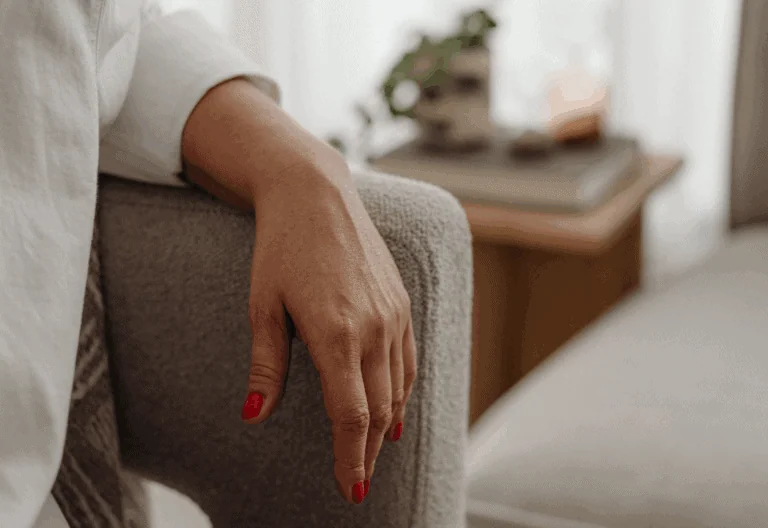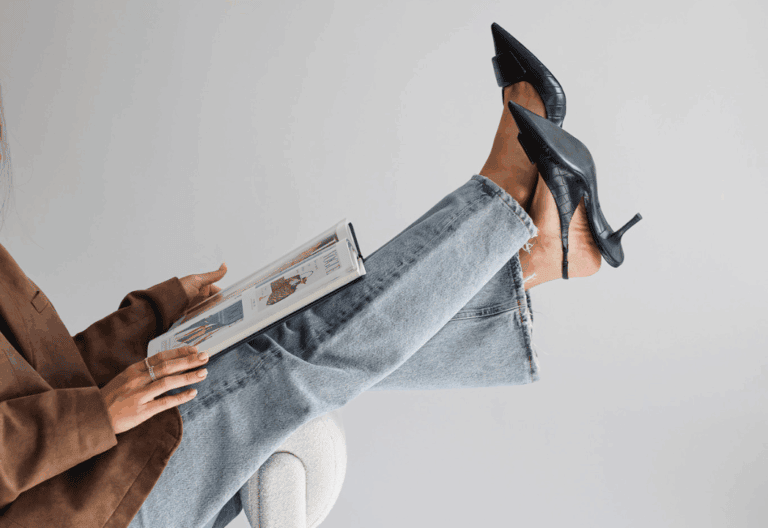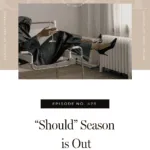
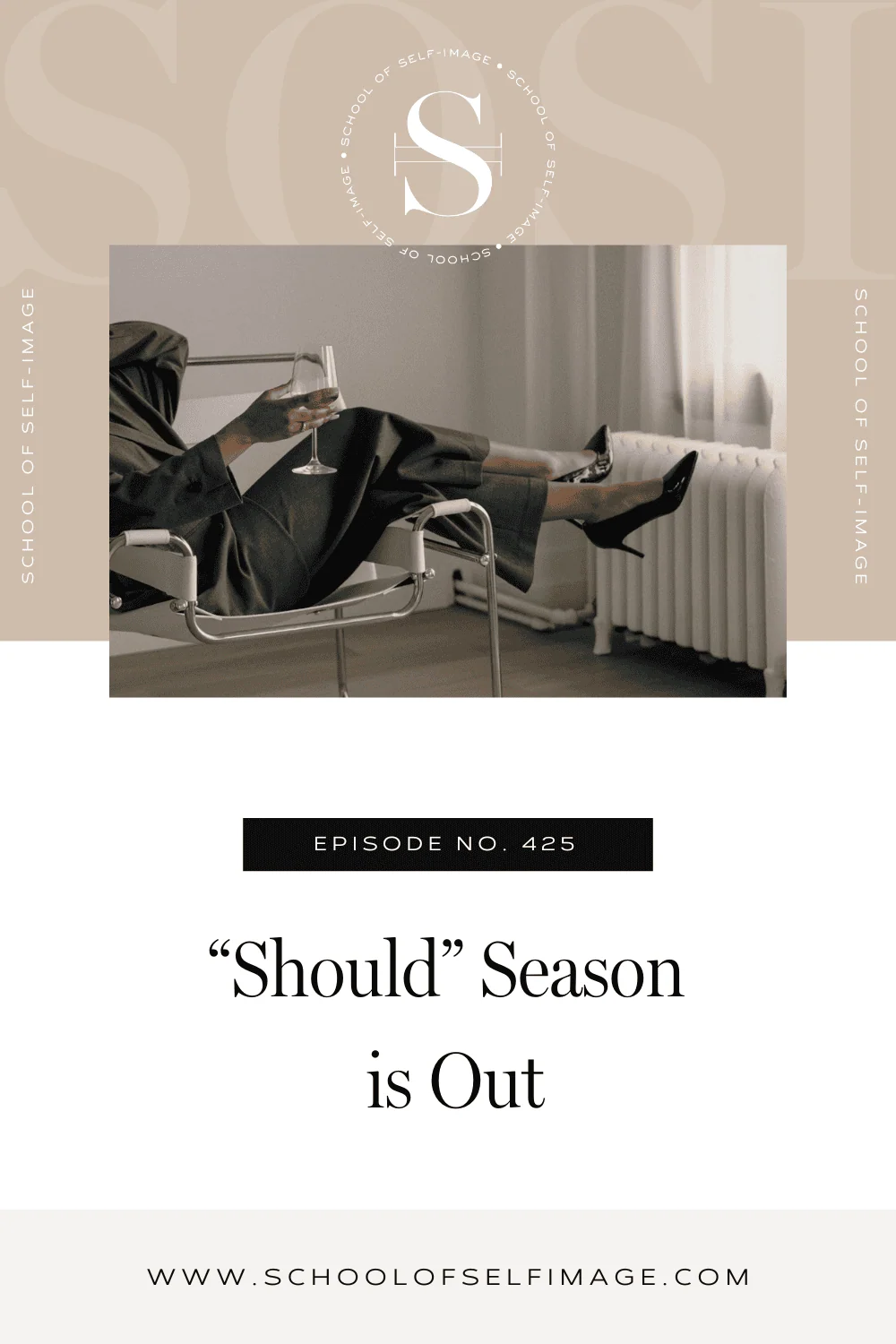
Transforming ‘Should’ into ‘Desire’: A Journey to Self-Discovery
The word “should” carries significant weight in our lives, often representing obligation and criticism. In this podcast episode, Tonya Leigh explores the profound impact that this single word can have on our mental and emotional well-being. When we use “should,” it typically conveys a sense of duty or correctness, suggesting that there is a right way to do things. This inherent judgment can lead to feelings of shame and guilt, ultimately hindering our personal growth and fulfillment.
She shares a relatable story about a listener named Jeanette, who eagerly anticipates Tonya’s annual Live Like an Editor workshop as a tool for success. Tonya emphasizes the importance of breaking free from the cycle of “shoulds” that keep us playing small and reflects on her decision to take January for deep reflection before diving into the new year.
Tune in to discover strategies for overcoming the pressure of expectations and embracing your true desires.
Episode Details:
00:32 – Breaking Free from “Shoulds”
01:56 – Reflecting on the New Year
03:31 – The Concept of “Should Season”
05:09 – Definition of “Should” and Its Implications
08:00 – The Harm of “Should” in Personal Growth
10:24 – Internal “Shoulds” and Self-Criticism
13:31 – The Pressure of Societal Expectations
16:14 – The Paradox of Self-Acceptance
19:25 – The Body Test for True Desires
23:32 – Building a Life Based on True Desires
24:56 – Conclusion: Embracing True Desires
Useful Resources:
- Click HERE for Five Essential Questions
- Click HERE to join the Membership
- Click HERE for a FREE download
- Click HERE to sign up for our weekly newsletter, The Edit
Connect with Master Life Coach Tonya Leigh:
- Click HERE to follow our Instagram
- Click HERE to visit our website
- Click HERE to visit our Facebook group
- Click HERE to follow our TikTok
- Click HERE to subscribe to our YouTube channel
Episode Transcript
Have you ever noticed how the word “should” seems to follow us around like a critical friend, constantly whispering in our ear everything that we’re not doing right? Maybe you’ve experienced the familiar heaviness in your chest when someone tells you how you should be doing things or that not in your stomach when scrolling through social media and thinking about all of the things that you should be doing with your life. Well, today we’re going to explore why this single word might be the biggest obstacle standing between you and what you truly desire. And more importantly, how to finally break free from the endless cycle of shoulds that keep you actually playing small. Let’s dive in.
Welcome to the School of Self-Image where personal development meets style. Here’s your hostess, Master Life Coach, Tonya Leigh.
Hello, hello, my beautiful friends. Welcome to another episode. I have a fun story to tell you. I was in the grocery store a few days ago and this woman comes running up to me and she was like, “Tonya Leigh, is that you?” And I turned to her and I was like, “Yep, it’s me.” And she was so lovely, her name is Jeanette. And she told me that she’s been listening to the podcast for about three years, she has been around for a long time. And she told me that one of the things that she looks forward to every year is doing my Live Like An Editor workshop. And she was like, “Why haven’t I seen it this year?” She was like, “It’s the one thing that I do every year that really sets me up for success.”
And I told her like I’m telling you right now, “We are doing it.” We are doing it in February this year. I intentionally took the month of January to really slow down and to spend some time in deep reflection. I do think we jump into the new year sometimes with that new year, new you energy, which is why January the 10th is actually called National Quitters Day, because historically that is the day when people quit on their resolutions and their goals. Just 10 days in. And I think many times it’s because people aren’t spending the time to really go deeper. Think about it, we’ve come off of the holidays and we haven’t even had a chance to get our Christmas decorations down when we’re expecting ourselves to come up with a whole new plan for the new year. And so I slowed it down this year and it has felt really, really good, and I feel like February is going to be the perfect time for Live Like An Editor. For any of you all who are like Jeanette, you’re wondering where is it? It’s coming.
And if you want to do some of that deeper reflection that I was talking about, I actually put together five questions that I have been journaling-on over the past month, and they have helped me have so much clarity and I think it's such a great precursor to the Live Like An Editor workshop. If you want to get access to those five questions, you can go to sosistaging.wpenginepowered.com/art. It's called the Art Of The Edit, Five Essential Questions To Curating Your Most Authentic Year Yet. They are so good, go download them, spend some time with these questions and stay tuned for Live Like An Editor which is coming in February.
Now, I have another really important public service announcement. Should Season is out my friends. What is Should Season? Well, it is that time in your life when your actions are driven by obligation rather than true desire. It’s when every decision that you make comes with a weight of expectation rather than excitement. It’s also when you find yourself constantly measuring your life against an impossible standard and collecting evidence of all the ways that you are falling short. Is any of this sounding familiar? It’s a season marked by self-criticism where your inner dialogue is filled with everything you’re supposed to be doing, everything you’re supposed to want, and everything you’re supposed to have achieved by now.
This is for all of y’all who think you are behind and you’re constantly telling yourself that you should be further ahead. It’s when your choices are shaped more by what others expect than what you truly want, it’s when you’re living in preparation mode instead of presence, and it’s when you’re more focused on fixing yourself than expressing yourself. Should Season, this is how you’re going to know if you’ve been in it. It’s when shame and guilt becomes your compass instead of desire being your guide. That season is out my friends.
When I was preparing for this episode, I looked up the definition of should and here’s how Oxford English Dictionary describes it, “Should is defined as used to indicate obligation, duty, or correctness, typically when criticizing someone’s actions.” Let’s dissect this. It indicates obligation, something you have to do. It indicates duty, something you’re supposed to do. It indicates correctness, meaning there is a right way to do things. And most importantly, it typically is used when criticizing someone’s actions. Built into the very definition of criticism is judgment, judgment of how someone is behaving or what they’re doing. And this explains why should, if you pay attention when you use it or when you hear it from others, it feels very heavy and it usually immediately triggers shame because at its core it is a word of criticism or judgment.
Even when it’s presented as helpful advice, “You should try this or you should do it this way.” The underlying message is still criticism, the way you’re doing it isn’t right. And when we use it on ourselves such as, “I should be better at or I should have.” We’re essentially turning that criticism inward and becoming our own worst critic. Now, in life, you are going to have two versions of shoulds. You’re going to have external shoulds, and this is when people are telling you who you should be, what you should want, how you should do things, how you should behave. And we cannot control the people, the people are going to be the people. And so we just have to recognize that word and its impact on us and we have to do our own work not to internalize it.
And sometimes it’s very innocent. The other day, I’ll give you an example, I was laying in bed with Vons and in a very jokingly way I was like, “You should rub my back right now.” And he said to me, he was like, “Will you just ask me?” And I thought about that. It was me indicating that he is supposed to be doing it and even though I meant it in a fun and joking way, I realized that word is not the best way to make a request. And so even sometimes myself will use this word not intentionally to hurt someone or to trigger a negative emotion but it really was a moment of clarity for me.
I was like, “I am going to stop using this word. I’m going to really pay attention. Because I know I use it on myself and I know there’s nothing good that comes from it, it just creates this heaviness in my body.” And so that was really interesting and he called me out which I appreciate, that’s why he’s so good for me. He holds a mirror up to me in a way no one else ever has and I’m so, so grateful for that.
I’ll never forget a few years ago someone that I respected turned to me and said, “You should be further along in your business.” And I remember in that moment just feeling shame like, “God, I’m doing this wrong.” Even though I was so proud and loving where I was in my business at that time, that one statement calls me to question everything. And that’s why we have to be mindful of these are just sentences that are being offered to us. Notice how they feel, is there any truth in them? If it triggers a reaction, maybe it’s something you haven’t worked through in your own self. Because when I think about that one statement, there was a part of me that has often wondered if I would’ve done things in a certain way actually against my own ethos, against my own desire because I have loved growing my company slowly, I have loved enjoying the journey. And I know that if I would have tried to do it faster, I wouldn’t have enjoyed the process as much.
But there is that little part in the back of my brain that’s always said, “Well, if you would’ve done it this way, you shouldn’t have done it this way and you could have grown faster.” It just means that I need to go in and reconcile that, to make peace and to really appreciate how I’ve built my business because I’m very proud of it. But people will do this to you all day, every day. I’ve done it to people not realizing the impact that it was having on them. I’m sure I’ve done it to my daughter many, many times, “You should wear that outfit or you should consider doing this.” There’s a whole different way that you can communicate to people like, “Have you considered one possibility is you could try this? You could think about doing it this way.” It’s very different than using the word should.
Should, again, indicates obligation, something you have to do. It indicates duty, something you’re supposed to do. It indicates correctness, a right way to do things. And we already live in a world where we’re always thinking we’re doing it the wrong way so should just triggers that. And most importantly, it is typically used when criticizing someone’s actions so pay attention when you might be using this with the people that you love.
Now, here’s the really interesting thing. Sometimes people will offer you a should that actually has some truth in it for you but the way it’s presented, there is a better way. For example, if someone said to me, “Tonya, you should really consider living in the south of France one day.” I’d be like, “Huh, maybe I should.” That is a possibility. Not every should may trigger the shame, it may trigger possibility, it may trigger excitement. Pay attention to that. However, as we are delivering our shoulds to the world, I want us to be very mindful of how we communicate them. Again, “Have you ever considered that you could actually live in the south of France one day?” Is a better way in my opinion to express that versus, “You should consider it.” Can you all see the difference?
Now, let’s talk about the should that we really need to pay attention to and this is the one that we use on ourselves, these are the internal shoulds. I want you to notice if any of these sound familiar to you. I already mentioned this one but it’s one that I hear a lot coaching women, “I should be further along right now.” I want you to just understand that there is no upside to that thought. When you think that, how does it feel in your body? I’m guessing heavy, suffocating. It might make you want to contract. There is no upside to it. And if you think about the emotion that that cause maybe regret, disappointment, sadness, frustration, and those emotions never birth positive actions. If you were supposed to be further along right now, guess what? You would be.
I love what Byron Katie says, “To argue with reality is to argue with God, and you only lose 100% of the time.” There is no upside to saying, “You should be somewhere other than where you are.” It slows you down. And here’s the crazy part, it keeps you creating the same thing over and over again. How often do you say to yourself, “I should be a better…” Fill in the blank, a better wife, a better mom, a better business owner, a better friend. It’s indicating that you are not doing some role in your life right and it’s filled with criticism. It’s a very different sentence versus, “I want to be be.” I want to be a better mom. I want to be a better wife. I want to be a better business owner. That is you focusing forward as to what you want versus focusing on trying to change from criticism and obligation.
Here’s another one that I hear, “I should be married by now.” I was just coaching someone in the membership on this the other day and what I can offer you is the same thing that I offered you on the last example. If you were supposed to be married right now, you would be. Really think about it. What is the upside in you thinking you should be in a relationship and married when you’re not? It is arguing with reality. Now, it’s very different than saying, “I want to be married. I’m excited to find my partner.” Or maybe you don’t want to be married but you keep thinking that you should want to be married because all of your friends are getting married, then it’s about you making peace with what you want, what you truly desire.
Here’s a good one and one that probably 99.9% of the listeners will say, “Yep, I’ve thought that at some point.” “I should lose weight.” Should you? Why? Who said? Where did that come from? It is very different than saying, “I want to get healthy. I want to lose weight. I want to learn to take care of my body. I want to feel energy. I want to feel healthy.” I should lose weight is heavy. And when you’re feeling heavy, what do you want to do? I know me, I went ahead straight to the fridge and eat and prove myself true. See, y’all. I should be losing weight because that’s how the self-image cycle works. You have a sentence in your mind that causes you to feel a certain way, that causes you to do certain things, and you keep proving that true. And every time you do, you keep cementing a self-image with every cycle.
If you see yourself as an overweight woman and you walk around telling yourself, “I should lose weight.” Can you see how that cycle works? Think about the version of you that’s lost the weight, what is she telling herself? She’s not talking about how she should lose weight, she’s talking about how she loves taking care of herself, how she loves having energy, how she wants to do things. It’s a true desire and you have to start aligning with her now first with your thoughts. And when you think about your future self, she doesn’t have a should season. She got through that a long time ago which is how she was able to create that future.
Let’s talk about some other shoulds that I hear, “I should be more organized.” Should you? Why? Who said? There are some people right now who are thinking that they should be more organized when in fact they don’t want to be, and that’s okay. Now, I personally think being more organized helps so many areas of our lives. I think it helps our brains to think better. I think it creates space for creativity. But I will also say that I have known many successful people who are not organized so it is not mandatory, it is not a requirement. When you make peace with who you are, then you can change. And I’m not going to take credit from that, that’s from Carl Rogers who was an American psychologist who says, “The curious paradox is when I accept myself as I am, then I can change.” Every time you should on yourself, you’re not accepting yourself as you are, you’re criticizing yourself thinking you should be something different than who you are in that moment.
And the shoulds just go on and on, “I should meditate every day. I should be more productive. I should have my life together. I should be happier, more grateful. I should be more loving. I should have more friends. I should be socializing more. I should have more in my savings right now. I should own a house by now. I should be investing better. I should spend less on my self-care. I should spend more on my self-care.” It runs the gamut. And if you pay attention, you’re probably doing this to yourself all day every day. And I just want you to understand the impact of that on your soul, on your spirit. A free spirit is not weighed down by shoulds. To have that free spirit, you’re going to have to start shedding the shoulds.
Now, here’s where things get interesting and maybe a little bit tricky. Because while it’s easy to spot the obvious shoulds like when someone literally tells you what you should do, what about those sneaky shoulds that masquerade as our own desires? It’s the ones that feel like personal goals but still leave you feeling heavy in your chest when you think about them. That’s one of the things that we work on within the membership is helping people figure out their true desires, what is signature to them, so unique to them. Because even with goals, I have noticed even in my own life going after goals that were should goals, and those were the years that I was the least fulfilled. It’s only when I’ve gotten in touch with my true desires and made those the goals that I have had years where I felt excited, where I felt aligned, where I felt like I was moving towards my own North Star.
How do you distinguish between what you authentically want and what you think you should want? I’m going to give you some exercises to consider, and the first one is the body test. Hold that potential desire in your body and see if it feels expansive or if it feels contracting. The body doesn’t lie. The body holds so much wisdom and oftentimes we need to get out of our head and get into our bodies to find our truth. When you think about let’s just say losing weight and being successful at it, does it feel expansive? Does it feel exciting? And most importantly, does it feel like love? Or does it feel contracting? Does it feel like you are in prison?
Now, I want to be very mindful. Don’t think about the process because the process for any goal is going to come with obstacles and challenges that if we focus on those, we will talk ourselves out of it every single time. Don’t think about the process of getting there, just think about getting there, being there, and notice how it feels.
I have done this with women before, and women who thought that weight loss was their goal ended up not being a true desire at all. They were actually without society telling them what they should look like, without hearing their mother in their head from childhood saying, “You should lose weight.” They were actually very happy with their bodies. I’ve been there. There was a time in my life where I was still going after weight loss and I realized, “Wait, I’m actually really pleased with my body right now. Why am I doing it?” And it’s because for me, weight loss was always the goal that I was used to going after. And so don’t be surprised even with weight loss if you find out it’s not actually a true desire, and that’s okay. Making peace with that opens you up now to consider what do I really want to focus on? What do I really want to go after?
The next way you can find out if something is a true desire or just a heavy should is with what I call the source test. And the way you do this test is you ask yourself, “If no one knew about this choice or if you couldn’t post about it, would you still want this?” It’s so good. I think about my house. If no one ever saw my house, if I never shared my house, if I never ever invited another person into my house, would I still want this house? And the answer is yes. I feel so at home here, I love it here. I told Vons the other day, I’m like, “I never want to leave.” I have become a legit homebody. I just enjoy this space so much and so that reflects back to me. It’s a true desire and I’m so glad I went for it.
But there are other people who are focused on buying a home or building a home because they think they should. Maybe they were told that they should own a home or maybe they’re trying to compete with the Joneses, I don’t know. And when they really look at if I couldn’t share this, if no one knew about this choice, they realize I don’t want a home. I want to rent and travel and not have that obligation. And that’s okay too.
There’s also the language test. Listen to your inner dialogue because true desire sounds like, “I want to explore. I’m curious about… I feel drawn to… I’d love to try. This lights me up. I’m excited for…” Whereas fear and shame shoulds sounds like, “I need to prove. I have to show them. Everyone else is… I’ll be behind if I don’t. What will they think if…” If you are building a life off of fear and shame shoulds, you are going to be building a prison for yourself because forever you are going to be taking action to prove, to show them, to try to run from the fear and the shame. But when you build your life based off of true desire, it is so fun, it’s exciting, it’s loving, it’s joyful. And that’s why should seasons got to go. Because more than anything, for every single one of you listening to this, I want you to be living a life that lights you up from the inside out and from the outside in. And you can never do that if you are taking actions because you think you should be.
As we wrap up today, I want you to imagine dropping the heavy backpack of shoulds, the one that you’ve been carrying probably for way too long, and fill the lightness that comes when you release all those expectations, obligations, and criticisms both from yourself and from others. Because here’s what I know for sure, your desires are waiting on the other side of your shoulds. They are those quiet whispers of what you truly want, that lights you up, what feels expansive and exciting. The next time you hear yourself say, “I should.” I want you to take a pause, take a breath, and ask yourself, “Is this a true desire or am I trying to meet someone else’s expectations or my own that doesn’t serve me?” Remember, you get to choose. You get to write your story. You get to define what success looks like for you.
Should season might’ve been a long season in your life but today marks the beginning of a whole new season, one where you listen to your desires, where you trust your intuition and move forward with choices that feel aligned with who you truly are, not who you think you should be. Because the truth is there is nothing that you should be doing, there’s only what you choose to do. And that choice, that is your power. Until next time, remember this, your desires are never wrong. They’re simply showing you the way home to yourself.
Have a beautiful week, my friends. And I will see you on the next episode. Cheers.
